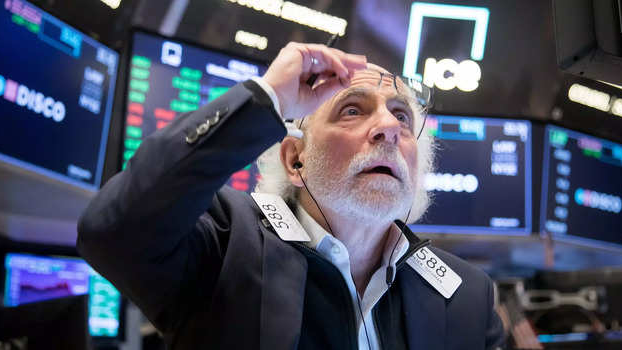By Anthony Moretti
Imagine the headlines in the U.S. media if information had been uncovered suggesting that roughly 1-in-5 national politicians in a country that Washington sees as an adversary had been identified as financially benefiting from their time in office. And imagine the outrage if many of those politicians had broken federal laws in doing so.
In fact, a prominent U.S. newspaper has detailed such an ethical morass, and it can be found in Washington, D.C.
The New York Times recently concluded that 97 of the 535 members of Congress – Republicans and Democrats alike – had reported stock deals between 2019 and 2021 in "industries that could be affected by their legislative committee work." The total number of stock trades was over 3,700, according to the newspaper, and each one of those deals points to a potentially dreadful scenario: Politicians' votes could have been influenced by their personal financial interests.
In addition, an analysis by Business Insider determined that "72 members of Congress ... recently failed to properly report their financial trades as mandated by the Stop Trading on Congressional Knowledge Act of 2012, also known as the STOCK Act." That act established new disclosure rules for members of Congress and their families or staff who buy or sell stocks. It also made clear how politicians could invest their money.
A separate investigation, carried out by the Colorado Sun news outlet, determined that "U.S. Rep. Lauren Boebert disclosed between $5,000 and $80,000 in assets in various stocks, cryptocurrency and brokerage funds" in her 2021 financial statements. However, "the investments were all listed as belonging to her husband, Jayson Boebert. But Boebert didn't file the required 'periodic transaction reports' when the investments were purchased in 2021. Nor did she file reports on eight cryptocurrency trades her husband made on the Robinhood app over two days in May 2021 ranging from $4,000 to $60,000."
In other words, she broke the law. I urge you to not hold your breath as you wait for any meaningful penalty to be handed down against her. None will.
The aforementioned Business Insider article noted that members of Congress offered a variety of excuses "including ignorance of the law, clerical errors, and mistakes by an accountant" to explain how they have run afoul of the STOCK Act.

A trader works at the New York Stock Exchange in New York, the U.S., March 9, 2022. [Photo/Xinhua]
Would such excuses be mocked if those politicians were from countries that were enemies of the United States? Would American and Western media organizations not use story after story to reaffirm that those enemy politicians were in power simply to put more money into their own pockets? Would the term "corrupt" be discussed by one American politician after another in describing that enemy land?
The answers: Yes. Yes. Yes.
Remember, we are not talking about one politician making one mistake. We are talking about widespread arrogance, a firm belief by approximately 20 percent of Washington politicians that the rules do not apply to them. There is no other way to explain this ethical disaster in Washington.
However, in America, there is no secret that the rich and powerful play by rules that average Americans do not. Those with influence buy the best attorneys when they need legal representation, send their children to the best colleges and universities regardless of whether that child has earned the right to be at such an exclusive institution, benefit from laws that can lead to them paying miniscule amounts of income and other taxes, and pay for better health care; and, yes, they often do all of these things while skirting the laws that are touted as examples of America's commitment to equality, fairness, transparency and the rule of law.
America must lead by example, leading politicians tell their constituents and millions of others. And all the while, those same politicians are being led by greed.
Keep in mind that in the days and months leading up to the 20th National Congress of the Communist Party of China (CPC), which took place on October 16, some Western news organizations were questioning why general secretary of the CPC Xi Jinping was so committed to carrying out an anti-corruption campaign in his country. As just one example, the Financial Times claimed that Xi had gone too far. One is left to wonder if the message the paper wanted to deliver was that some kinds of corruption are acceptable?
Reuters took a different tack, acknowledging correctly that "Xi's corruption fight has proven popular among a public that had grown fed up with widespread graft." Those words — a public ... fed up with widespread graft — accurately explain how millions of Americans feel when they read about leading politicians trampling laws and norms that would put the average citizen in jail.
But no American president or influential politician would dare undertake a legitimate, forceful and meaningful anti-corruption effort throughout national and state halls of power. To do so would be a career-ending move. Remind me again about the myth of American exceptionalism?
Anthony Moretti is an associate professor in the Department of Communication and Organizational Leadership at Robert Morris University.

 中文
中文



